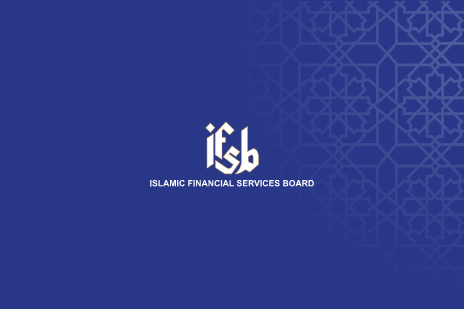April 30, 2017
@
8:30 AM
–
1:30 PM
The half-day Seminar is designed to encourage broad interaction among the delegates to explore Shariah-compliant Islamic capital market instruments, in particular
Sukuk and Securitisation of Assets, to generate liquidity in the global Islamic financial services industry. At a time of implementation of tightened financial regulations, this Seminar seeks to raise awareness on the readiness of Islamic financial institutions to meet the new requirements, particularly on liquidity, while also highlighting opportunities available to various bodies (e.g. regulatory authorities, capital market players, legal firms) to support the industry’s liquidity management needs.
The opening remarks will be delivered by Mr. Ian Johnston, Chief Executive, Dubai Financial Services Authority and Mr. Zahid ur Rehman Khokher, Acting Secretary-General, IFSB
The confirmed panelists are:
- Basheer Ahmad, Dubai Financial Services Authority, UAE
- Ismail Dadabhoy, Islamic International Financial Market (IIFM), Bahrain
- Dr. Mohamed Damak, S&P Global Ratings, UAE
- Debashis Dey, White & Case LLP, UAE
- Khalid Howladar, Acreditus, UAE
- Moosa Tariq Khoory, Dubai islamic Bank, UAE
- Gregory Man, Norton Rose Fulbright (Middle East) LLP, UAE
- Prof. Volker Nienhaus, University of Bochum
Programme – Event Session(s)
| Date |
Time |
Topics |
| Day 1
30/04/2017 |
08:30 – 09:30 |
Registration |
| 09:30 – 09:45 |
Welcoming Remarks |
| 09:45 – 10:50 |
Session 1: Panel Discussion: The Role of Shariah-Compliant Instruments in the Islamic Capital Market Liquidity risk management remains one of the most challenging issues within the IFSI as Shariah principles render most of the conventional capital and money market instruments and borrowing windows/facilities as not compliant. This is at a time when revised Liquidity Coverage Ratio (LCR) and Net Stable Funding Ratio (NSFR) liquidity requirements under both Basel III & IFSB GN-6 are gradually being put into effect. There is a significant lack of Shariah-compliant high-quality-liquid-assets (HQLA) that meet LCR requirements and, in the past, many Islamic banks are known to have relied primarily on cash and central bank placements as their main liquidity management tools. Shariah-compliant profit-generating tradable instruments are also widely in demand for liquidity management purposes by other Islamic financial institutions, for instance, in the Takaful and the Islamic asset management industries. Given this, how can existing instruments in the Islamic capital market support liquidity management in the IFSI? What are the issues involving the use of commodity murabaha for managing liquidity? Is there a need to develop new ICM instruments based on other commodities such as crude oil? What efforts can be made by various bodies (e.g. regulatory authorities, multilateral organisations, capital market players, exchanges/bourses) to support liquidity management in the IFSI? What are the opportunities available in the ICM to address this gap in the market? |
| 10:50 – 11:10 |
Networking Break |
| 11:10 – 12:15 |
Session 2: Panel Discussion: Securitisation of Islamic Assets Amid a period of liquidity pressures in key IFSI jurisdictions, influenced by prolonged low energy prices and fiscal tightening, an option for Islamic financial institutions with long-term non-tradable assets is to explore securitisation. The global financial crisis tarnished the image of securitisation, to some extent, but building on the lessons learned from the crisis, Shariah-compliant structures could enable Islamic banks to more easily meet revised capital and liquidity regulations. For instance, structures could enable an efficient offloading of non-tradable assets from their balance sheets to improve capital ratios; monetise previously illiquid assets to enhance liquidity; and facilitate raising of cheaper funding at an asset level as opposed to the bank level. The key challenge is in structuring an Islamic financial securitised instrument that meets Shariah requirements and avoids the problems that contributed towards the crisis. |
| 12:30 – 13:30 |
Networking Lunch |

